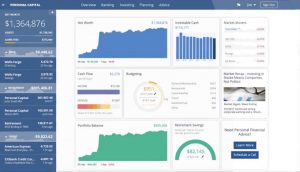Death and taxes. Two things that life promises pretty much all of us. There’s not a whole lot we can do about death part, so let’s focus on what we can change. If you’ve been following my blog for a while you know that I’m all about finding ways to increase your income. Your income is your most powerful wealth building tool so the faster it grows, the faster your wealth has the potential to grow.
In most parts of the world a nasty little side effect of increased income is a higher annual tax bill. To that end, I’d like to discuss some strategies to legally reduce your taxable income. Lower taxable income equals a lower tax bill. I compiled this list based on what’s worked well for me. Doing all of them can result in a meaningful reduction in what you owe when the tax man cometh.
401(k)
Love it or hate it, contributing to your 401(k) is one of the easiest ways to reduce taxable income. For 2018 you’re allowed to contribute up to $18,500. There are currently no income restrictions on 401(k) contributions. They’re open to everyone. An $18,500 reduction in your adjusted gross income is nothing to sneeze at.
HSA
The Health Savings Account has tons of advantages in addition to lowering your tax bill. For an individual, contributions are limited to $3,450. A family is allowed to contribute $6,900. If you meet the requirement of being enrolled in a High-Deductible Health Plan (HDHP), it’s a great way to reduce taxable income.
IRAs of various types
A traditional IRA permits up to a $5,500 contribution in 2018. There are income restrictions associated with being able to deduct the full amount. The full deduction is available for single persons with an adjusted gross income (AGI) of less than $118,000 per year. Married couples are permitted an AGI up to $186,000 before the deduction begins phasing out. Contributing the full amount can reduce your tax bill by $5,500.
For small business owners the SEP-IRA is another option that permits up to a $55,000 contribution with corresponding deduction. For additional details on contribution limits take a look at my 2018 contribution limits cheatsheet.
Investment Income
A great reason to build an investment portfolio is the ability to receive income that’s taxed at much lower rates. Ordinary income is usually taxed at rates of 25% or higher. Investment income that qualifies for capital gains status, is taxed anywhere from 0% to 20%. Most people will pay a 15% capital gains rate. Although this is a long-term strategy for reducing taxable income, it’s still worth pursuing. If you haven’t yet started investing, get going today.
Entrepreneurship
Starting a business that integrates activities you enjoy doing is a great way of lowering your tax bill. Consider the following example.
Suppose you’re a person who enjoys traveling. You could start a travel blog where you write articles about the places you’ve visited, cultures experienced and foods eaten. If you run your blog as a legitimate business and are realizing income from it, you’d then have the option of writing off some of your travel costs as business expenses. Though it may take time to build your business to the level where it can fund travel, it’s still worth pursuing. You’re going to spend the money anyway so there might as well be a tax benefit associated with it.
Charity
One of the best uses for money is using it to help someone else. It’s even better when the person(s) have no way to repay you. Although charitable contributions usually don’t have the same dollar for dollar reduction to your AGI like the 401k or IRA, they are still an option you should consider. It’s also good for your spirit.
These ideas form a good foundation towards lowering your tax bill. Discuss them with your CPA and see how they fit into your situation. Even if you only take full advantage of the 401(k), IRA and HSA, you should see close to a $30,000 reduction in your adjustable gross income.
Let me know which of these options you decide to take advantage of and how they work out for you. See you in the comments below!
A great FREE tool I personally use for tracking my portfolio is Personal Capital. When you click this link to sign up for your free account, both you and I will receive $20. Every little bit helps right?




